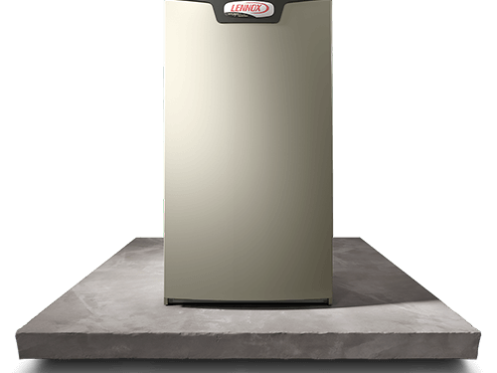As temperatures begin to drop for the year, many homeowners find themselves firing up the furnace for the first time in months. Although a freshly ignited furnace can produce warmth, it can also emit an unusual or unpleasant burning smell. While a strange smell does not always mean that you need to panic, you should also never ignore the implications of unusual smells. Understanding the different types, causes, and solutions for burning smells can let you know exactly when it is time to contact a trained professional for help.
Types of Furnace Burning Smells
Throughout the year, your furnace can accumulate dust on interior components such as the furnace heat exchanger, burner, ducts, or ignition system. As the weather cools and you turn on the furnace for the first time of the season, you may notice a distinctive odor as the dust within the system disintegrates.
While the smell is unpleasant, it should be quite temporary and should never significantly affect indoor air quality. In contrast, persistent or lingering burning smells represent a much greater cause for concern. For example, a rotten egg smell could indicate a gas leak, and an electrical burning smell could signify a system malfunction. Problematic types of burning smells can include the following categories.
Rotten Egg Smell
The smell of rotten eggs is one of the most unwelcome scents that comes from your furnace. Unfortunately, this sulfurous smell could indicate a leak in the natural gas line. If you smell rotten eggs, most experts advise that you turn off the furnace and evacuate the home. You should then call a professional immediately. While some homeowners may feel tempted to tinker with the natural gas lines themselves, the combustible properties of natural gas are a major fire hazard. Rather than risking property damage or explosion, you should remain outside until a trained expert confirms that it is safe to return indoors.
Musty Smell
Furnaces that smell musty can indicate mold and mildew. During warmer months, dust particles can naturally settle in a heating unit. Depending on the humidity level, this dark and damp space then becomes the ideal breeding ground for mold. This mold or mildew growth can occur in the unit itself, in the ductwork, or in the furnace-mounted evaporator coils.
Mold can also become trapped on the furnace filter or humidifier pad. It then produces a musty smell when you turn the heater back on for the colder months of the year. Unfortunately, the presence of mold or mildew can exacerbate health issues like allergies, asthma, COPD, and other breathing problems. Instead of living with mold, contact a professional company for system inspection, duct cleaning, and filter replacement.
Plastic Smell
Plastic smells can signify that a foreign object is in your system. These foreign objects are typically household accessories or defective furnace parts. For example, a plastic toy or kitchen tool that becomes lodged in a furnace will begin to melt as soon as you turn on the heat for the winter. In addition, some furnaces have internal components that include plastic casing or insulation. If these parts become loose, they can melt and burn. Smelling plastic means that you should reach out to a company for system diagnosis and repairs.
Gunpowder Smell
Gunpowder smells wafting from your furnace can seem alarming. This unpleasant scent is usually the result of a fried circuit board or overheated fan motor. Resolving issues that create a gunpowder or fireworks smell requires professional intervention. Turn off the unit and contact a heating services company to perform internal repairs.
Oil Smell
Sometimes, furnaces emit smells reminiscent of cooking oil, which may be the result of a clogged filter. An HVAC technician can help you change the filter in time for the cold season. If you have a primarily oil-fueled furnace and continue to smell a persistent oil scent, this could also indicate a malfunction or leak. A professional technician can inspect the device and complete a tune-up or repair.
Smoke Exhaust Smell
Smoky exhaust smells usually indicate blockages within your system. The most common type of blockage occurs within the furnace chimney or flue pipe. Flue gas from combustion within your furnace must flow somewhere, and if the flue pipe is blocked, this gas will simply force its way back into your home. Instead of breathing in toxic fumes, you should turn off the unit and contact a trained technician to remove any blockages from the system.
Chemical or Formaldehyde Smell
Chemical or formaldehyde smells mean that you need to contact an HVAC professional immediately. The smell of a formaldehyde-like substance can indicate a crack or failure in the heat exchanger. Part of the job of a heat exchanger is also to help redirect carbon monoxide produced during your furnace’s normal combustion process. A broken heat exchanger means that a lethal amount of carbon monoxide gas can seep into your home.
Electrical Smell
Electrical burning smells usually produce two types of scents: metallic or chlorine. Many people associate electrical burning with chlorine because of experiences in stormy weather. During thunderstorms, for example, lightning splits atmospheric nitrogen and oxygen molecules. These molecules combine to form nitric oxide. Rain carries nitric oxide to Earth along with its characteristic chlorine scent. Your furnace can produce a similar scent if it overheats.
Electrical burning can also emit a metallic smell if internal components have begun to break down because of age or general wear and tear. For example, a worn-out blower motor can start to stiffen or seize up. When the motor pulls in extra electricity to help it push through the resistance, the additional voltage can cause a buildup of heat and create sparks. An experienced technician can help correct electrical issues before they constitute a safety hazard.
Possible Causes of Burning Smells
Any burning smell from your furnace could indicate a problem with the unit itself or with your heating system. An HVAC professional has the training to diagnose abnormal smells and offer options that may include replacement or repair. Some of the most commonly identified causes include clogged filters, damaged motors, or wiring issues.
Clogged Air Filter
Furnace filters serve as the gateway for air to enter your heating system. These filters trap floating particles such as dust, debris, pet dander, allergens, and airborne contaminants. Over time, these filters become clogged. If you do not change the filter before turning on your furnace, this dirt and grime can start to burn and produce a lingering odor. The presence of contaminants also creates a breeding ground for more serious problems like mold. Since your unit may have to work harder to effectively heat the home, the dirt buildup can also shorten the lifespan of your unit. By following proper maintenance and changing filters, you can help prevent this problem.
Overworked Blower Motor
An overworked blower motor is often the result of poor air circulation. Dirty filters, ventilation line clogs, or blocked air return ducts can all block airflow within the unit. When this occurs, heat gets trapped within the furnace and puts far too much stress on components like the heat exchanger and blower motor. Internal components that overheat will eventually produce a burning smell. Overworked parts are more likely to create and increase the risk of exposure to toxic fumes, so it is important to commission repairs once you notice the unit overheating.
Wiring Issues
A home furnace can include many electrical components and connections. When there is a problem with any connection or wiring, your entire system can sustain damage. Fortunately, a trained expert can check and tighten loose connections during a tune-up before the start of the season.
How to Handle Furnace Burning Smells
The most important factor for preventing burning smells is to obtain an annual inspection and tune-up. This maintenance practice allows an HVAC professional to inspect, diagnose, and fix internal components of your furnace long before they accelerate into safety hazards. In addition to the annual inspection, you can also reach out to a technician to professionally clean the heater, vents, and ductwork. Since heaters are often dormant during the hottest parts of the year, this preventative maintenance ensures that your unit will work efficiently when the temperature drops during winter months.
Contact Us Today
Because burning smells can remain unresolved even after opening your windows or vents, it is important to reach out to a professional for troubleshooting and help. Summit Heating, A/C, Plumbing & Electrical offers emergency furnace repair, furnace maintenance, and furnace replacement for Denver and surrounding areas. We can also provide information on alternative solutions like smart thermostats and heat pumps. Contact Summit Heating, A/C, Plumbing & Electrical today for your furnace needs.


